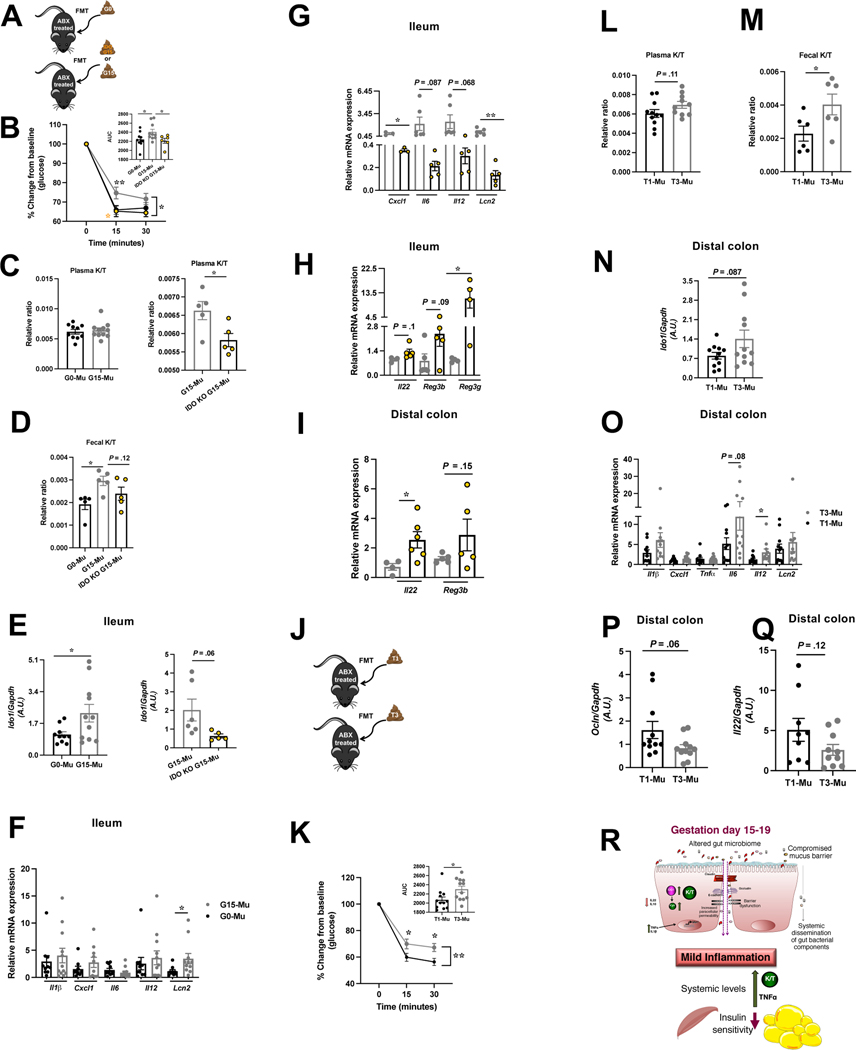Figure 7. Transfer of pregnancy associated gut microbiota impacts IR, IDO1 levels, and intestinal inflammation.
Schematic of fecal microbial transfer (FMT) to antibiotic (Abx) treated mice (A, J); insulin tolerance test (inset, AUC) (B, K); kynurenine/tryptophan ratio (K/T) in plasma (C, L) and feces (D, M); mRNA expression of ldo1 (E, N), of proinflammatory cytokines and anti-microbial peptide Lcn2 (F-G, O) in the ileum of G0 C57, G15 C57, and G15 IDO-KO and in DC of T1 and T3 recipients, respectively; mRNA expression of Il22 and Reg3b/3g in the ileum (H) and DC (I) of IDO-KO-G15 and of Ocln (P), Il22 (Q) in DC of T1 and T3 recipients. (R) summary: gut microbial change and mild inflammatory milieu at gut mucosal surfaces drives an increase in gut IDO1 expression/activity (K/T) and shift tryptophan metabolism to enhanced kynurenine (kyn) production in IR phase of pregnancy. Data are mean±SE (n=6–12) analyzed by two-tailed Student’s unpaired t-test (insets B and K, C-I, L-Q) and two-way ANOVA with Tukey’s post-hoc analysis (B, K). *P<.05, ** P<0.01.

